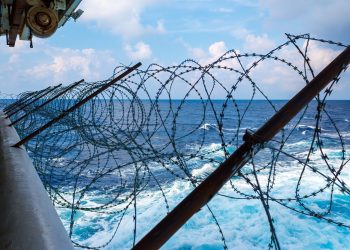Autonomous ships are slowly but steadily becoming a reality for the shipping industry, as several organisations develop new solutions and testbeds.
One of these organization is ShippingLab, which aims to create Denmark’s first autonomous, environmentally friendly ship.
Now further develoments have been made in that field. Namely, Danelec is developing the connectivity and remote-control system for the new autonomous ferry. In order for the system to work properly, a diverse sensor data will be integrated in order to communicate with the shore control centre.
Another critical factor for autonomous ships’ success is standardisation. The plan for this specific project is to use a Vessel Remote Server (VRS), in order to establish a cybersecure communication from ship-to-shore and vice versa.
The VRS is data and service agnostic, which means that it can use information from any type and work with any terrestrial or satellite network.
In addition, the partners of the first autonomous, environmentally friendly ship are also focusing on mobile technology. This is an important aspect, as the ferry will work within range of the mobile network. However, as autonomous ship applications move further from the coastline, the VRS will be able to still work properly with satellite networks to ensure a constant upstream data link for monitoring, as well as a downstream link for remote control.
Commenting on the project, Christian Løfquist, Product Manager, Danelec Marine, explained that the VRS will know what bandwidth is available, so as to provide the capability to change to different operation profiles, according to current conditions. This is vital, as getting data from an autonomous vessel i crucial.
As for the regulatory aspect of autonomous ships, currently there is no international regulation. Nevertheless, some countries are working out their own rules on a national basis.
In order to a regulatory framework to apply, Mr. Løfquist believes that autonomous operations must show comparable, if not stronger, safety and security than normal ships.





























































